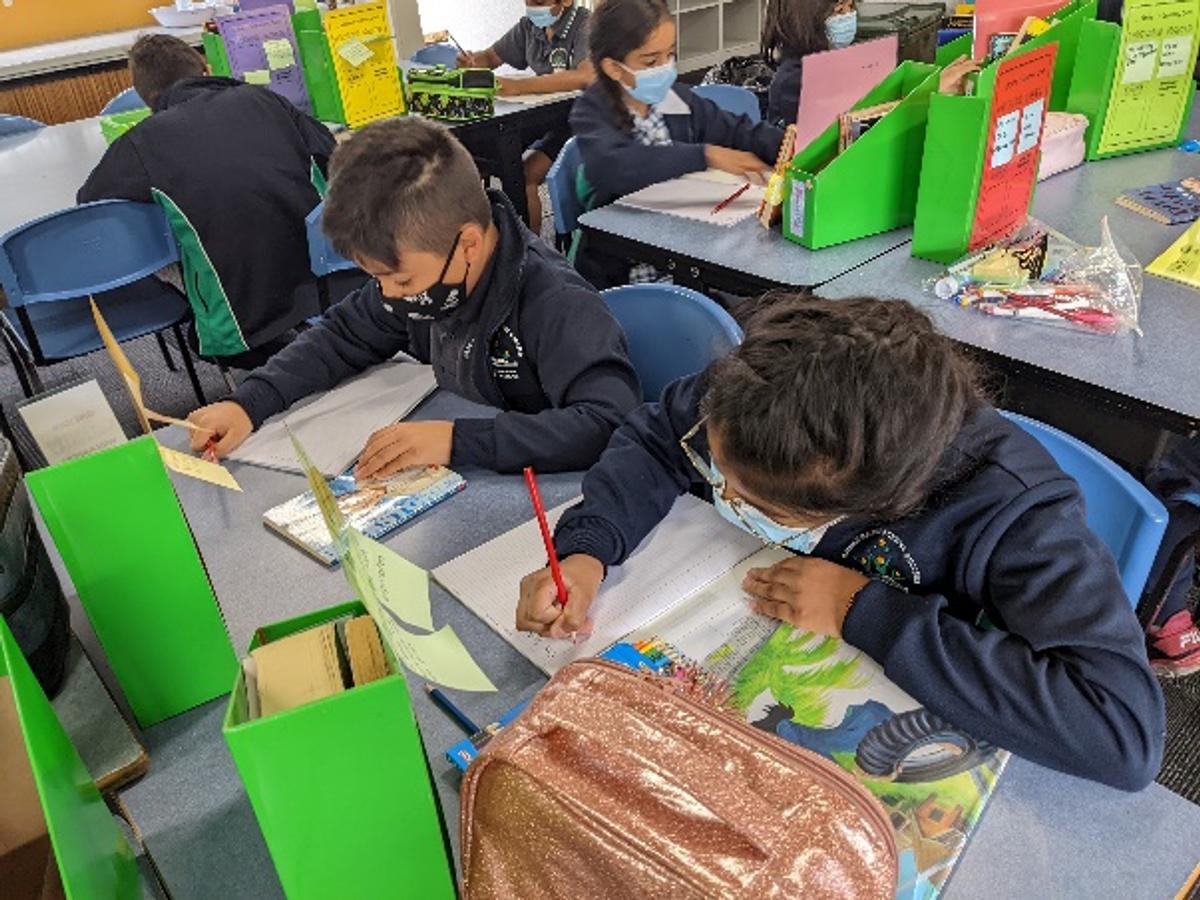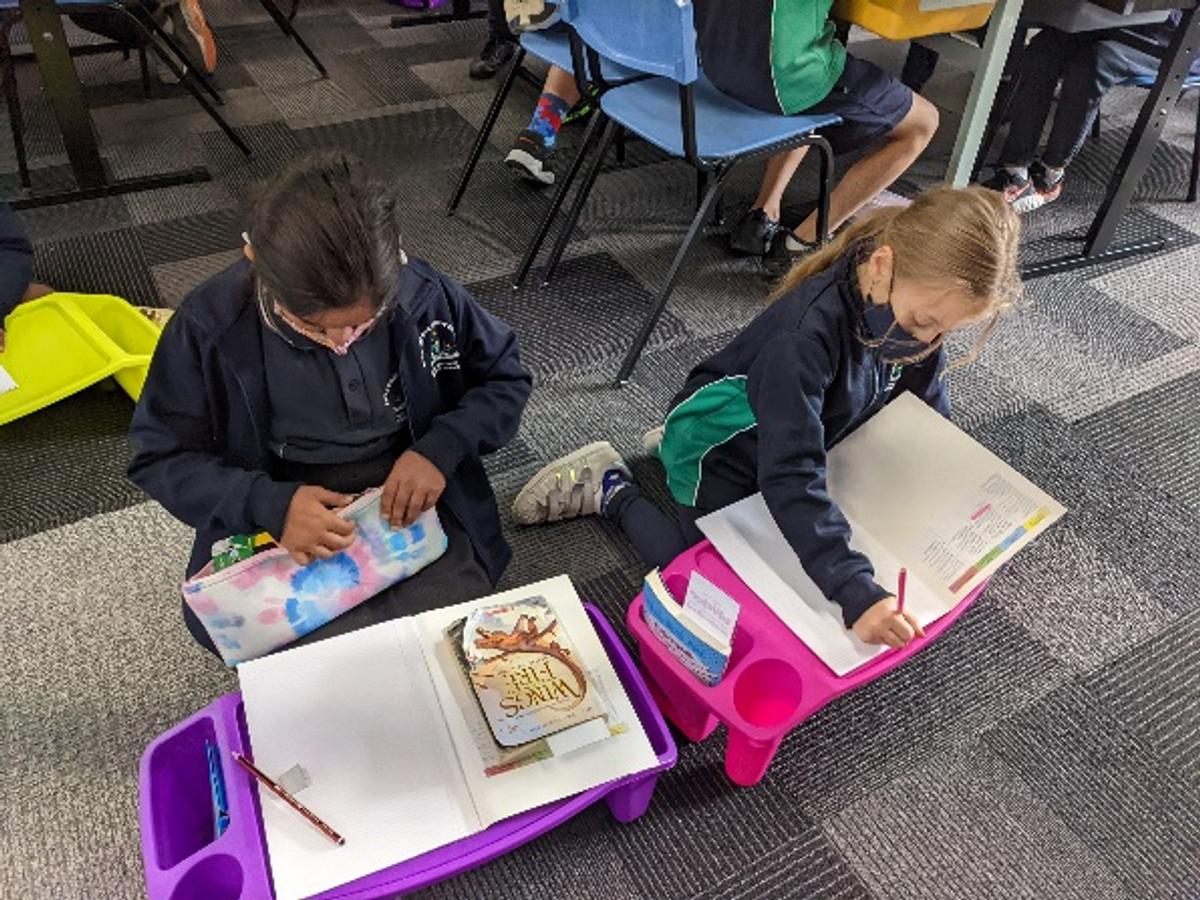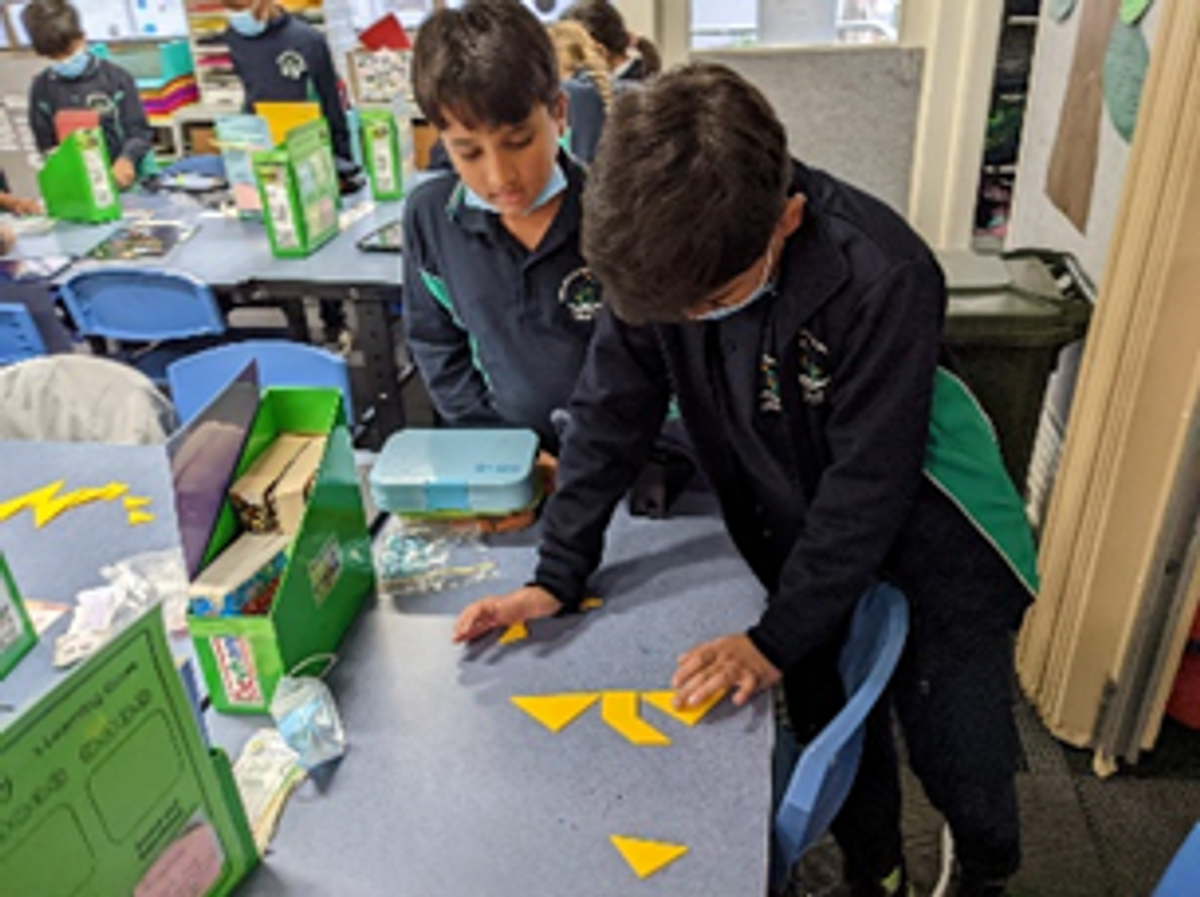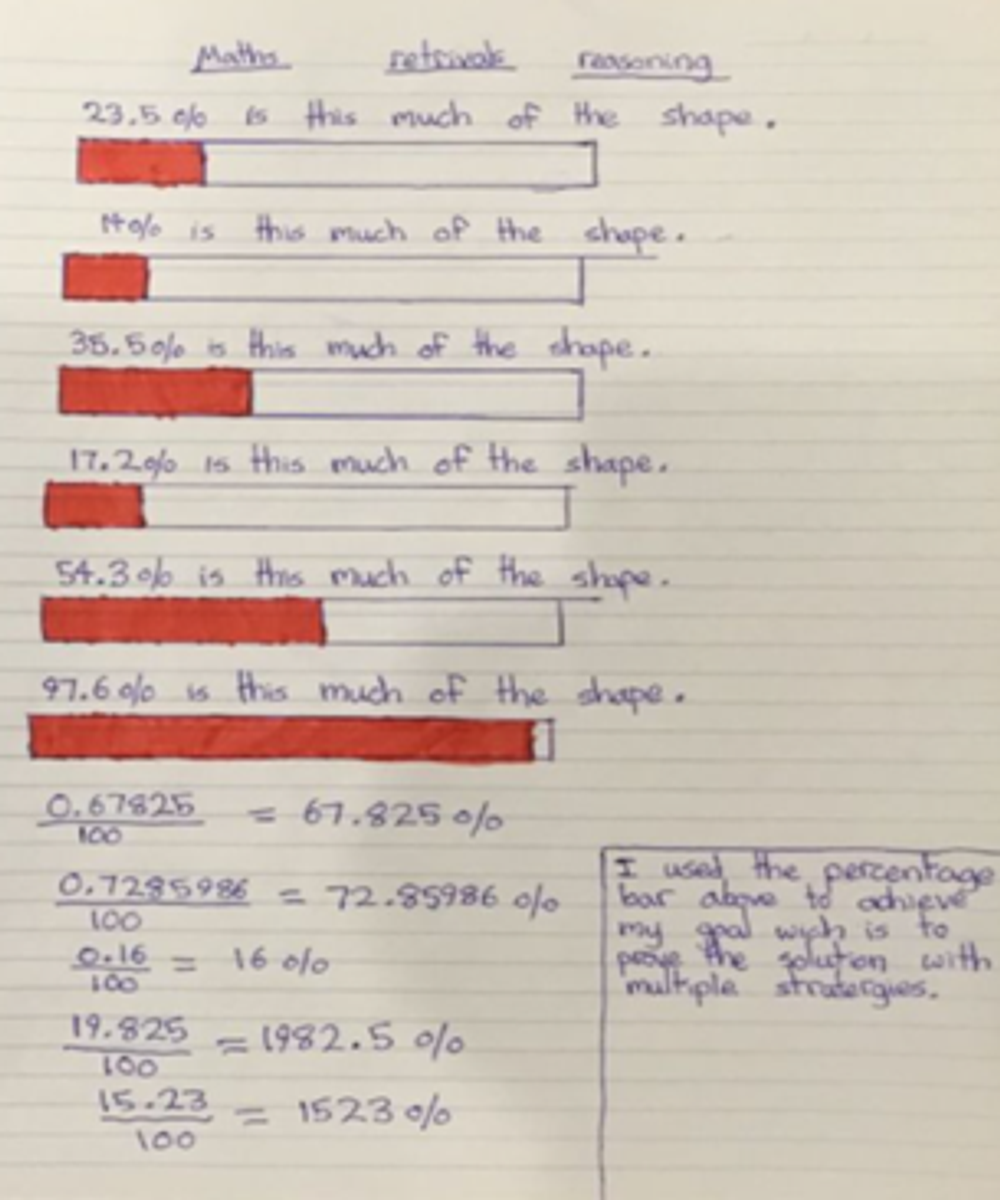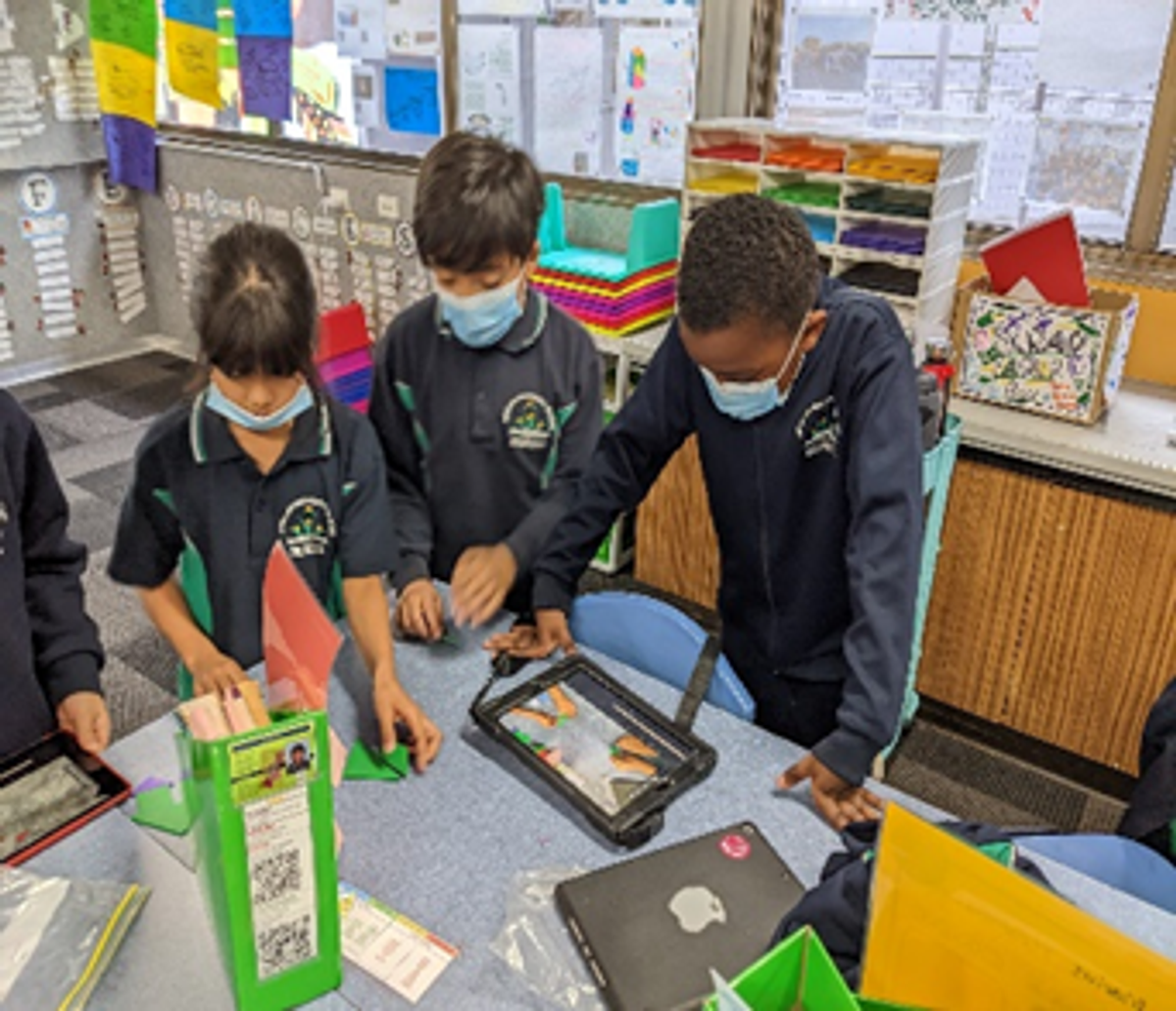Welcome to Term Four
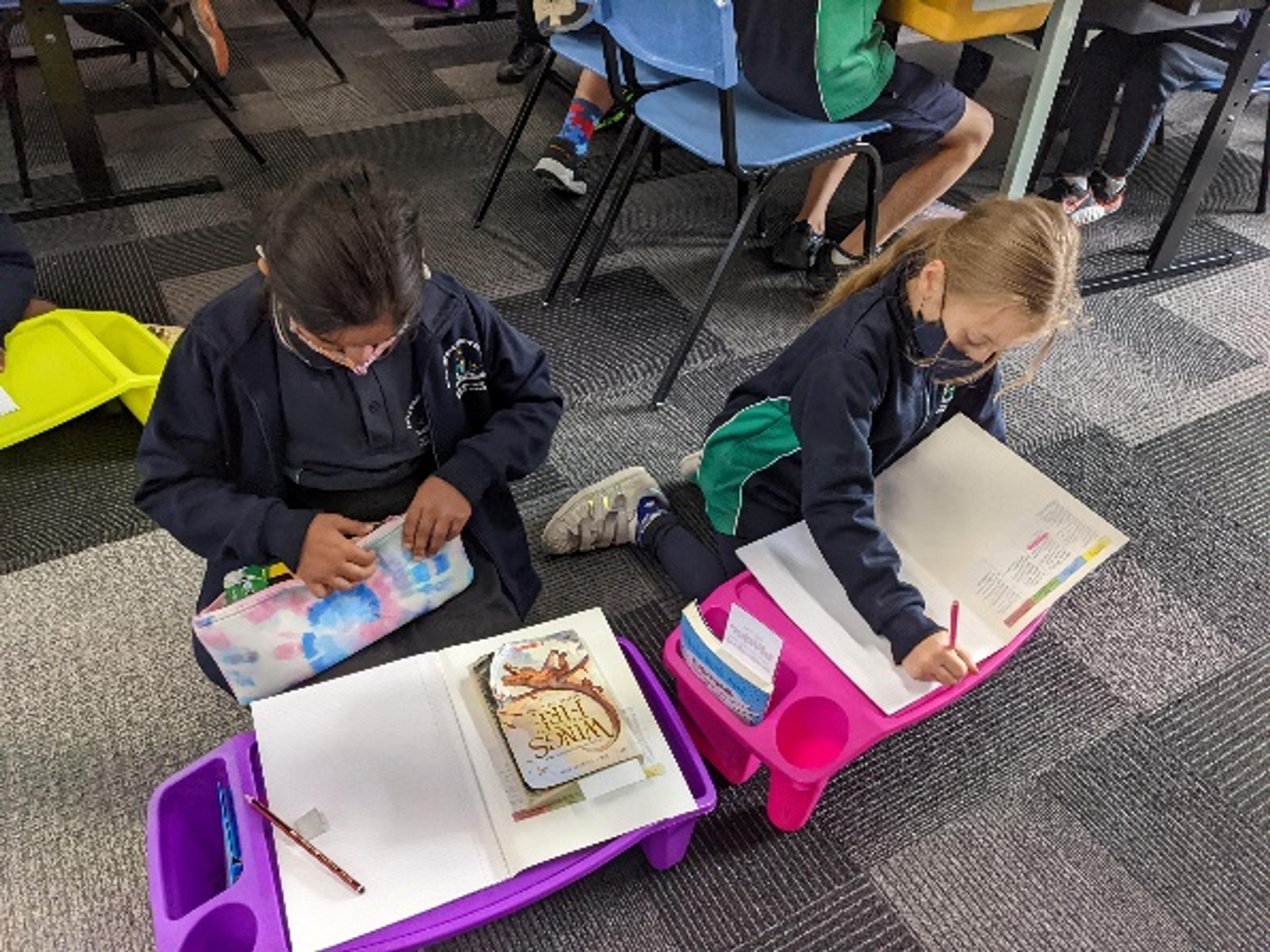
We would like to welcome all the new families who have recently joined and welcome back all our familiar faces. Term Three was full of rich learning opportunities that demonstrated the students’ fabulous hunger for learning. Term Four is underway and as always, it is a delight to see the learners adapting, collaborating, encouraging and supporting their peers seamlessly throughout these experiences. We are looking forward to seeing the learners challenge themselves through their learning in this 11-and-a-half-week term.
Important Dates for Term 4:
- 20th October – Taskwork Incursion
- 1st November – Melbourne Cup Public Holiday
- Thu Nov 3rd - Whole School Fun Run
- 13th December 2023 Day
- 14th December – reports go live to families
- 16th December – Class Parties
- 20th December – Last Day: Early finish (1:30pm)
Inquiry
In Term 4, Level Four is inquiring into the question ‘How do we use design in physical science?’ Throughout this unit, learners will explore physical science around us and how it impacts our lives. They will investigate these concepts through hands on experiments. From their explorations and investigations, learners will come away with an understanding that:
- Heat can be produced in many ways and can move from one object to another
- Forces can be exerted by one object to another through direct contact or from a distance
- Energy from a variety of sources can be used to generate electricity
- The STEAM process can be utilised to create a solution and create innovative solutions
Additionally, a key element of our inquiry will involve transferring our understanding and making connections to Global Goal 7 ‘Affordable and clean energy’ and how our actions and decisions can impact our community. Learners will investigate a variety of designs, design processes and materials, comparing which materials and designs are more ethical, sustainable and affordable. This will guide them in creating their own design and follow the STEAM process to create their own solution for a relevant global issue.
You can support this learning at home by:
- Discussing the materials and composition of objects within your home including what the materials are made of and how they produce and hold heat.
- Discussing where physical science is present in your home and your environment.
- Ask your learner about what part of the STEAM process they are currently on and the process involved in their innovative creation. (list the parts, so they have the language to ask these questions)
We look forward to the seeing the learners engage in the inquiry unit this term, where they will design and create prototypes to meet energy concerns.
Reading
In Reading this term, we are deepening our understanding of procedural and persuasive texts. Learners will analyse procedural and persuasive texts focusing on the specific structure, techniques, language features and vocabulary. They will use mentor texts used during reading sessions as exemplars of what they will achieve in their own writing. Learners will be exposed to a variety of text formats (videos, written texts, oral texts, etc.) and will be provided with opportunities to build their vocabulary as well as developing comprehension skills through literal and inferential meaning. Throughout these units, learners will be working towards their personalised CAFE goals, increasing their skills and strategies to read with Comprehension, Accuracy, Fluency and Expanding their Vocabulary.
You can support your child at home by:
- Encouraging 10-20 minutes of reading each night
- Reading with your child
- Asking questions about the book before, during and after reading
- Asking your child about their CAFE goal and how they are working towards it
Writing
Term Four Writing will consist of learners transferring and applying skills learned from reading to their own creation of procedural and persuasive texts. In procedural writing, they will be applying precise verbs, sequential steps, supporting images, as well as clear and descriptive language in order to assist their reader in successfully and accurately following their instructions. When writing persuasive texts, we will be exploring and employing language that convinces their audience of their belief or opinion. Learners will refine their arguments through emotive and emphatic language and plan clear connections between their main idea and supporting details, ensuring their audience believe their idea or opinion. We will continue with sustained writing with a focus on narrative writing elements (audience, ideas, character/setting, vocabulary, paragraphing as well as sentence and text structure), providing them with opportunities to achieve their personalised VOICES goals.
You can support your child at home by:
- Exploring different procedures around the house, such as recipes, instruction manuals, game rules, etc.
- Discussing different topics and asking your child to justify their opinion on it – some examples could be whether homework should be banned, school should be 4 days a week, dogs are better pets than cats, etc.
- Asking your child about their VOICES goal and how they are working towards it
Spelling
Term Four Spelling will provide learners with opportunities to expand their vocabulary by identifying personal words from spelling misconceptions in their writing or from challenging words that they come across during Independent Reading. Each week, these words are investigated deeply by conducting a spelling inquiry into the elements of a word, such as etymology, synonyms, root words and prefix/suffix relationships. Learners will transfer their spelling words through speaking and writing opportunities each week. A targeted weekly spelling focus based on level need will be taught to deepen spelling strategies. At home, you can ask your child what their spelling words are and encourage the application of them in conversations.
Mathematics
Throughout Term Four, learners will continue to deepen their understanding of Mathematical concepts by applying their personalised SURF goals through collaborative and independent learning tasks, reflecting on how it deepened their understanding of concepts at the conclusion of each lesson. Throughout the term we will be looking at chance and probability. The students will be deepening their understanding of how to recognise and represent outcomes of chance events using tree diagrams, probability scales and percentages. They will too, develop their understanding of independent and dependent events through open-ended investigations. We will deeply explore measurement and geometry through investigating the properties of 2D shapes and 3D objects, unpacking how dimensions are linked, before exploring elements such as angles, length, perimeter and area.
You can support this learning at home in the following ways:
- Play chance games with cards, dice or spinners or play chance games such as ‘Rock Paper Scissors’ and discuss the probability outcomes together.
- Encourage your child to describe the probability of every day events using chance language.
- Ask your child to estimate the size of angles around the house.
- Your child could assist you in recipes and estimate the % of each ingredient required.
- Go on a ‘treasure hunt’ to find 2D shapes and 3D objects around the home.
- Discuss how angles and shapes area a part of architecture and design in everyday life.
- Encourage your child to build towers/structures out of blocks, cardboard boxes or cylinders.
- Present your child with the net of an empty cardboard box e.g. tissue or cereal box and ask them to fold it back together.
Social and Emotional Learning
This term, level four will continue to develop their own social and emotional awareness as well as build strategies through their own personal social and emotional goals. Learners will explore the idea of ‘challenge,’ what it means, how they can challenge themselves with their learning as well as asking for challenge. Learners will unpack what challenges means to them, how to recognise it in their learning as well as identifying what emotions they feel while challenged or not challenged. Through this learning they will develop strategies to move from not feeling challenge to seeking and welcoming challenge in their learning. Through our YCDI Keys to Success (Confidence, Persistence, Organisation, Getting Along and Resilience) and our School values (Integrity, Respect, Initiative and Global Empathy) learners will develop strategies to continue to build positive connections with each other.

